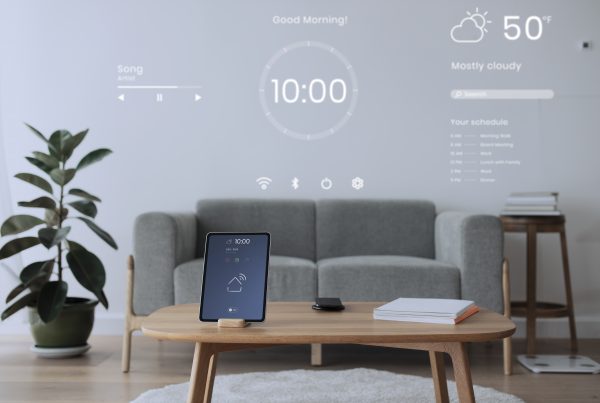Low code/no code tools (LCNC) are becoming a business mainstay. The technology’s simplicity, paired with its capacity to deliver tailored and highly intricate apps, is helping companies, indie developers, and non-experts build and deploy tech solutions for personal and professional use.
In 2024, McKinsey deemed LCNC as tech that has proliferated quickly and is easy to use. The consultancy firm also paired it with another crucial tool that is entering every aspect of our lives: generative AI (gen AI). Since the rise of OpenAI’s ChatGPT in late 2022, gen AI chatbots have helped people analyze massive amounts of data and create content based on it in just seconds. This has expanded the horizons in aspects like productivity, efficiency, and data accuracy in nearly every field.
LCNC and gen AI are also blending for people to build smart capabilities into their applications and even build their own tailored chatbots. The former has unquestionably elevated the pool of features people can integrate into their apps — think of all the possibilities content generation can bring into any given app.
At Appli, we’re constantly improving our AI feature for users to create more comprehensive and practical tools. But we don’t want to leave you guessing. So, here are four ways you can use our AI capabilities in your LCNC app.
1. Generating Questions In Education-Related Low Code Tools
If you’re someone who needs to be constantly asking questions — a journalist, a teacher, a doctor — wouldn’t a compliant question-generation feature at work make your life easier? Whether this is integrated in an enterprise-wide tool or your personal app, gen AI can lend you an extra hand to save time if you build an app without code.
In our case, for instance, we saw the need for teachers to stop taking work home, which can add up to working nearly 11 hours a day. As such, we wanted to shorten the time they spend creating assessments and instead allocate it to other critical tasks like meeting with parents, grading essays, or resting. This was one of the many reasons Quizli was born.
Quizli is an app #MadeWithAppli that allows educators to create various kinds of standardized or rapid-fire assessments, grade them, keep a student roster, and automatically upload records to the Student Information Systems (SIS), among other actions.
For test creation, we incorporated our own low code AI feature to let teachers generate questions according to subject, difficulty, grade level, and more. That way, they take minutes rather than hours crafting a test they can deliver digitally to students’ devices.
2. Gen AI Spec Matching For Client Feedback
For independent developers, graphic designers, illustrators, and other innovators who require client specs to base their work on, feedback is everything. And, as workers dealing with the workload on their own, reducing time in unnecessary or less critical tasks is paramount. How about reducing the time they spend receiving client revisions?
By using a LCNC app as a project database, users can integrate a gen AI feature to review their work and match it to client specs, generating a description of how both subjects differ and converge, and improvements or necessary tweaks to the original idea.
By generating this report of sorts, users will save time analyzing and jotting down their conclusions — which can take hours of drafting and editing — to instead focus on other projects. All it will take is to generate, quickly review, make necessary changes, and send the report and finished work for clients to send their feedback.
Likewise, it’ll make life easier for clients as they can read about the most important details of the project, helping them send more comprehensive feedback.
3. Structured Output For Detail-Oriented Fields
Not all prompt responses are built equal. Sometimes, you need more specificity than what’s given in a regular text-based ChatGPT response. How so?
For instance, let’s say you’re looking to build a recipe database, where precision is key to get a dish right. Either for professional or personal use, you’d want your recipes to be as specific and clear as possible, so when you or other users read the recipe, there’s no room for doubt regarding quantities, ingredients, and timing.
This is where building an app for your recipe database with a structured output can make all the difference in your detail-oriented endeavor. Let’s illustrate with an example.
This is what a regular gen AI response would look like coming from any AI chatbot:
Recipe Name: Spaghetti Carbonara
Servings: 4
Ingredients:
- 400 grams spaghetti
- 4 large eggs
- 100 grams parmesan cheese
- 150 grams pancetta
- 1 teaspoon black pepper
Instructions:
- Cook spaghetti in a large pot of salted boiling water until al dente.
- Fry pancetta in a pan until crispy.
- Beat eggs in a bowl, then mix in grated parmesan and black pepper.
- Drain spaghetti and return to pot. Quickly mix in pancetta and egg mixture off the heat.
- Serve immediately, garnished with extra parmesan and black pepper.
Nutrition (per serving):
- Calories: 600
- Protein: 25 grams
- Fat: 22 grams
- Carbohydrates: 75 grams
While the answers seem clear enough, this response isn’t explicit about many elements that could be left open for interpretation, such as labeling every ingredient with name, quantity, and unit.
This is what a structured output would look like, leaving nothing to the imagination:
{
"recipe": {
"name": "Spaghetti Carbonara",
"servings": 4,
"ingredients": [
{
"name": "spaghetti",
"quantity": 400,
"unit": "grams"
},
{
"name": "eggs",
"quantity": 4,
"unit": "large"
},
{
"name": "parmesan cheese",
"quantity": 100,
"unit": "grams"
},
{
"name": "pancetta",
"quantity": 150,
"unit": "grams"
},
{
"name": "black pepper",
"quantity": 1,
"unit": "teaspoon"
}
],
"instructions": [
{
"step": 1,
"description": "Cook spaghetti in a large pot of salted boiling water until al dente."
},
{
"step": 2,
"description": "Fry pancetta in a pan until crispy."
},
{
"step": 3,
"description": "Beat eggs in a bowl, then mix in grated parmesan and black pepper."
},
{
"step": 4,
"description": "Drain spaghetti and return to pot. Quickly mix in pancetta and egg mixture off the heat."
},
{
"step": 5,
"description": "Serve immediately, garnished with extra parmesan and black pepper."
}
],
"nutrition": {
"calories_per_serving": 600,
"protein_grams": 25,
"fat_grams": 22,
"carbs_grams": 75
}
}
}
As a result, your app’s gen AI capabilities can help you receive extra-specific responses that can prove useful in fields involving tutorials or other instruction-related activities.
4. Tailored Grocery List For Service Industry Needs
Keeping structured output in mind, service industry individuals handling large quantities of materials such as groceries, utensils, appliances, and more, know that careful planning is the key to success.
Let’s set the stage by picturing the arduous work of someone with a catering business. They’re hired to work at a wedding of over one hundred people with many courses, drinks, and hors d’ouvre, plus several dietary restrictions. How do they even handle a grocery list of that size? And how long does it take them to crunch the numbers to build a perfectly balanced grocery list?
For people in these kinds of situations, an internal catering app built with no-code tools can make all the difference in streamlining work. For instance, it can outline to-do lists and staff tasks, and generate a grocery list with any recipe and dietary specifications required through a gen AI feature. Just like the structured output for a recipe, the AI will come up with a minutely detailed list of grocery items that will make shopping and ordering much easier.
Gen AI has demonstrated it’s got serious chops to help people on the individual and enterprise levels save time while still getting the job done. When it comes to generating responses, detailed information, and even thorough questions, building your own app with no-code and low-code tools will elevate your productivity, efficiency, and give you back valuable time.
Are you ready to build a personalized app for your professional or personal needs? Get started with Appli today entirely for free! Download the App Builder here.







